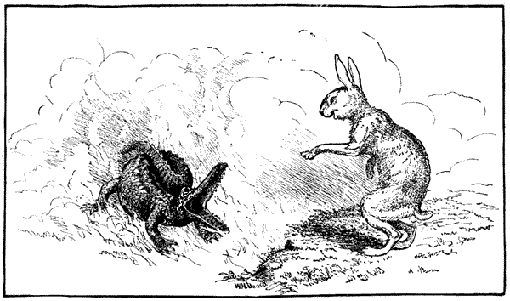Why the Crocodile Has a Hard, Scaly Skin

Why the Crocodile Has a Hard, Scaly Skin
Tale
Long ago the Crocodile had a soft skin like that of the other animals. He used to go far from the rivers and catch animals and children and by so doing annoyed the people very much. So one day when he was far away from water, they surrounded him and set the grass on fire on every side, so that he could not escape to the river without passing through the fire. The fire overtook him and scorched and seared his back, so that from that day his skin has been hard and scaly, and he no longer goes far from the rivers.
Notes
This rhyme can be found in "Negro Folk Rhymes, Wise and Otherwise," with a Study by Thomas W. Talley of Fisk University (New York, USA, 1922). Here's what it said about this tale and also another called "The Turkey Buzzard":
"Dr. C. C. Fuller: a missionary at Chikore Melsetter, Rhodesia, Africa, was good enough to secure for the compiler this rhyme [The Turkey Buzzard], written in Chindau, from the Rev. John E. Hatch, also a missionary in South Africa… Along with this rhyme came the following [Why the Crocodile has Hard, Scaly Skin] in his kind and obliging letter: 'We thought the story of how the Crocodile got its scaly skin might be of interest also'.' Talley wrote about the tale, 'This is about as literal an outline of the American Negro story 'Why the Alligator's Back is Rough' as one could have. The slight difference is that the direct African version mixes people in with the plot. This along with Mr. Harris's evidences practically establishes the fact that the Negro animal story outlines came with the Negroes themselves from Africa and would also render it practically certain that many animal rhymes came in the same way since these Rhymes in many cases accompany the stories.'"
If anyone knows the original version of this tale in Chindau, please email it to me. Thanks! Mama Lisa
Comments
You can read the African-American version of this tale called "Why the Alligator's Back Is Rough," in "Nights with Uncle Remus" (1917) by Joel Chandler Harris. Most of it is written in dialect.

























